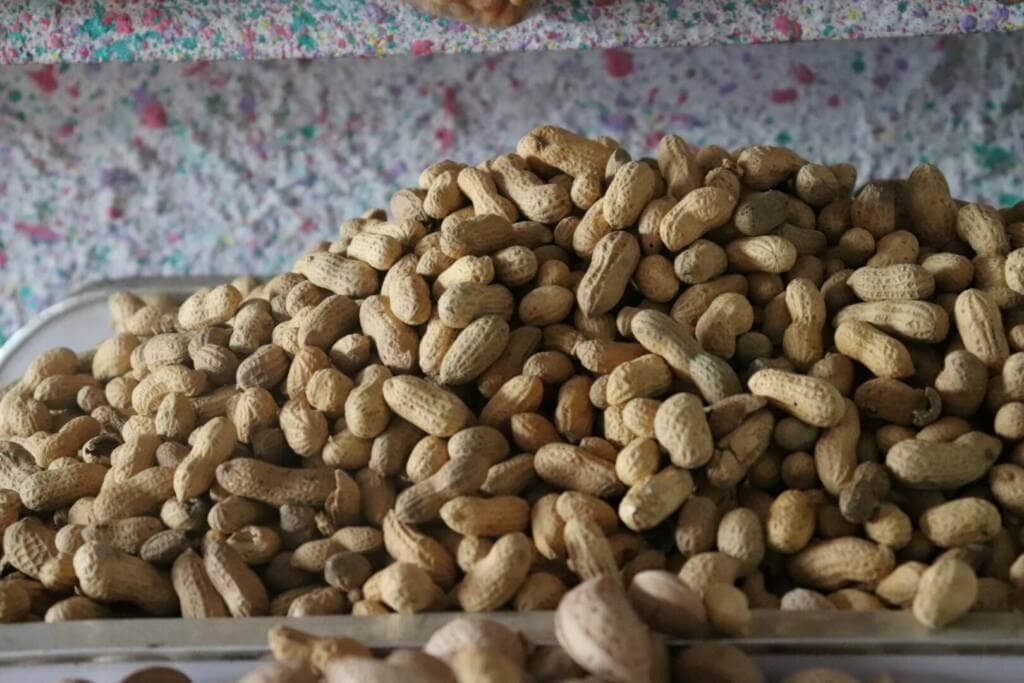Highlights
High consumption of nuts and peanut butter was helpful in lowering risk of some gastric cancers while having no association of risk with other esophageal or gastric cancer subtypes, as per a large health and diet study. Hence, using nuts and peanut butter as part of a healthy diet/nutrition may help reduce the risk of certain cancer types.
Nuts – A Popular Food
Nuts are a type of food which are popular throughout the world and one that no one would ever feel guilty eating an excess off. Whether it is the consumption of peanuts and peanut butter in the United States, cashews in India, or pistachios in Turkey, those who are able to consume nuts generally do not stray away from snacking and utilizing these delicious dry fruits. In fact, nuts are advertised as and generally believed to be extremely good for one’s health. The vitamins and minerals present in nuts have also shown an ability to decrease the risk of certain cancers such as colorectal and lung cancers but studies have not shown how nut consumption could potentially affect the risk of esophageal and gastric cancers.

Foods to Eat After Cancer Diagnosis!
No two cancers are the same. Go beyond the common nutrition guidelines for everyone and make personalized decisions about food and supplements with confidence.
Nut/Peanut Butter Consumption & Cancer Risk
To test out the effect nut and peanut butter consumption has on these specific cancer subtypes, there was a study done in 2017 by researchers at the National Cancer Institute in the USA. The data obtained for this study was from a NIH-AARP (National Institute of Health – American Association of Retired Persons) diet and health study which consisted of 566,407 people aged 50-71. Validated questionnaires were used on the participants of this study to figure out their daily nut consumption averages and the average follow up time for each participant was about 15.5 years. After analyzing the data from this study based on the number of people who were diagnosed with a type of esophageal and gastric cancers, researchers have found that participants with the highest consumption of nuts (C3) had a lower risk of developing gastric non-cardia adenocarcinoma compared to those who did not consume any nuts (C0) (Hashemian M et al, Am J Clin Nutr., 2017). The above association of lower gastric adenocarcinoma prevalence was also found to be true for high peanut butter consumption as well. However, there was no correlation found between an increased nut consumption and an increased or decreased risk of esophageal adenocarcinoma, esophageal squamous cell carcinoma and the stomach cancer that occurs in the first part that is closest to esophagus, gastric cardia adenocarcinoma.
Another independent study from the Maastricht University Medical Center in the Netherlands also analyzed a similar association of nut and peanut butter consumption on gastric and esophageal cancers in 120,852 males and females, aged 55-69 years, who completed a baseline questionnaire on diet, with a follow-up time of 20.3 years. They confirm the results from the NIH study where they found that high nut and peanut butter consumption was associated with a lower risk of gastric non-cardia adenocarcinoma and possibly esophageal squamous cell carcinoma but no association was found with other gastric and esophageal cancer subtypes (Nieuwenhuis L and van den Brandt PA, Gastric Cancer, 2018).
Conclusion
In summary, these studies show that increased consumption of nuts (as part of healthy diet) was either helpful in lowering the risk of some gastric cancers while having no association of risk with other esophageal or gastric cancer subtypes. Therefore, we can continue eating and enjoying nuts and peanut butter for its other health benefits without worry of negative impact related to cancer risks.
What food you eat and which supplements you take is a decision you make. Your decision should include consideration of the cancer gene mutations, which cancer, ongoing treatments and supplements, any allergies, lifestyle information, weight, height and habits.
The nutrition planning for cancer from addon is not based on internet searches. It automates the decision making for you based on molecular science implemented by our scientists and software engineers. Irrespective of whether you care to understand the underlying biochemical molecular pathways or not - for nutrition planning for cancer that understanding is needed.
Get started NOW with your nutrition planning by answering questions on the name of cancer, genetic mutations, ongoing treatments and supplements, any allergies, habits, lifestyle, age group and gender.

Personalized Nutrition for Cancer!
Cancer changes with time. Customize and modify your nutrition based on cancer indication, treatments, lifestyle, food preferences, allergies and other factors.
Cancer patients often have to deal with different chemotherapy side effects which affect their quality of life and look out for alternative therapies for cancer. Taking the right nutrition and supplements based on scientific considerations (avoiding guesswork and random selection) is the best natural remedy for cancer and treatment related side-effects.
